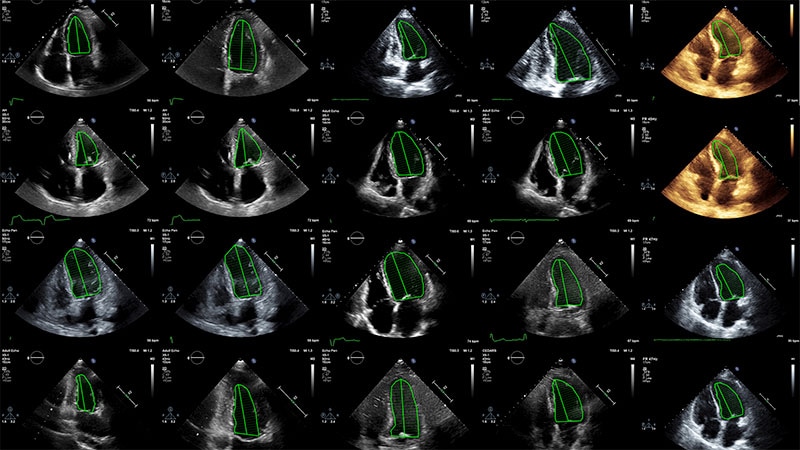AI Outperforms Sonographers in Heart Function Assessment Study
The study compared AI and sonographers in assessing left ventricular ejection fraction (LVEF) in echocardiographic studies. AI showed superiority over sonographers in initial evaluations, with fewer corrections needed by cardiologists. The mean absolute difference in LVEF assessments was lower for AI, indicating higher accuracy. Cardiologists had difficulty distinguishing between AI and sonographer assessments. The AI-guided workflow saved time for both sonographers and cardiologists. Study limitations included a single-center population and the need for more training examples for the AI model. The study was published in Nature.
- AI superior to sonographers in LVEF assessment
- Cardiologists had difficulty distinguishing AI from sonographer assessments
- AI-guided workflow saved time for sonographers and cardiologists
- Study limitations included single-center population and need for more training examples for AI model
- Published in Nature
Customize Summary
Rewrite with AI
Generate Citations
Translate Source
To Another Language
Generate MindMap
from source content
Visit Source
www.medscape.com
AI Challenges Sonographers in Heart Function Assessment
Key Insights Distilled From
by Marilynn Lar... at www.medscape.com 04-06-2023
https://www.medscape.com/viewarticle/990533
Deeper Inquiries
